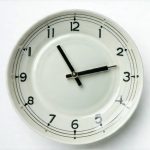The digestive system is an incredibly complex and resilient machine, constantly working to break down food, absorb nutrients, and eliminate waste. It’s often something we take for granted until it disrupts its usual rhythm. One common disruption is experiencing loose stools after a period where dietary habits have been less consistent or “structured” – perhaps during travel, holidays, or times of increased stress where regular meal patterns fall by the wayside. This isn’t necessarily cause for immediate alarm; in many cases, it’s a temporary consequence of how our bodies adapt to changes in input and routine. However, understanding why this happens and what steps you can take to support your digestive health is crucial for restoring normalcy and preventing future occurrences.
The human body thrives on predictability, including within the realm of diet. When we consistently provide our system with regular meals containing a balance of nutrients – fiber, protein, healthy fats – it develops an efficient process for digestion. Introducing erratic eating patterns or drastically changing dietary intake throws this established rhythm off-kilter. This can lead to altered gut motility (the speed at which food moves through the digestive tract), changes in the gut microbiome (the community of bacteria residing in our intestines), and ultimately, looser stools. It’s important to remember that digestion is not just about what we eat; it’s also about when and how we eat. A sudden shift in any of these factors can trigger a temporary digestive upset. If dietary changes are the culprit, you might find information on little protein intake helpful.
Understanding the Root Causes
Loose stools following days without structure are rarely a sign of something seriously wrong, but pinpointing the likely cause helps inform appropriate response. Often, it’s a combination of factors working together rather than one single issue. The most common culprit is undoubtedly dietary change – switching from home-cooked meals to restaurant food, consuming more processed foods or sugary drinks, or simply eating at irregular times can all contribute. These changes introduce new ingredients and altered nutrient profiles that your digestive system needs time to adjust to. Furthermore, travel frequently involves these kinds of shifts and introduces the potential for exposure to different bacteria through food or water sources, which can further disrupt the gut microbiome. It’s also possible high-grease takeout could be a factor.
Beyond diet, stress plays a significant role. When we’re stressed, our bodies release hormones like cortisol, which can directly impact digestive function. Stress can speed up intestinal motility, leading to less time for nutrient absorption and potentially resulting in looser stools. It also affects the balance of bacteria in the gut, favoring those that are more resilient but not necessarily beneficial for optimal digestion. Finally, dehydration is a frequently overlooked factor. If you’re not drinking enough fluids – especially when traveling or experiencing increased stress – your body may struggle to properly process food and maintain healthy stool consistency. You can also experience loose bowels following disrupted sleep which adds another layer of complexity.
- Dietary changes (increased fat, sugar, processed foods)
- Irregular meal timings
- Stress and anxiety
- Dehydration
- Changes in gut microbiome due to travel or diet
- Potential for food sensitivities becoming more apparent with altered digestion
Restoring Digestive Balance: A Step-by-Step Approach
When experiencing loose stools after a period of dietary inconsistency, the focus should be on gently guiding your digestive system back towards balance. This isn’t about quick fixes; it’s about supporting the natural healing processes within your body. The first step is often to implement what’s known as the BRAT diet – Bananas, Rice, Applesauce, and Toast. These foods are bland, easy to digest, and can help bind the stool. However, it’s important not to stay on the BRAT diet for more than a few days, as it lacks essential nutrients.
Next, gradually reintroduce other easily digestible foods like boiled potatoes, plain yogurt (if tolerated), and lean protein sources such as chicken or fish. Avoid fatty, fried, spicy, or highly processed foods until your digestion has settled. Simultaneously, prioritize hydration. Drink plenty of water throughout the day – aim for at least 8 glasses – and consider incorporating electrolyte-rich beverages to replenish fluids lost through diarrhea. Finally, remember the importance of rest. Allowing your body time to recover is crucial for restoring digestive function. Consider if no meal planning contributed to this situation.
- Implement the BRAT diet temporarily.
- Gradually reintroduce bland, easily digestible foods.
- Hydrate consistently with water and electrolytes.
- Prioritize rest and reduce stress levels.
The Role of Probiotics & Prebiotics
The gut microbiome is central to healthy digestion, and disruptions to its balance can often contribute to loose stools. Probiotics – live microorganisms that provide health benefits when consumed – can help restore a more diverse and balanced gut flora. You can obtain probiotics through fermented foods like yogurt (with live cultures), kefir, sauerkraut, or kimchi. Alternatively, probiotic supplements are available, but it’s best to choose one with multiple strains of bacteria and consult with a healthcare professional before starting any new supplement regimen.
Prebiotics, on the other hand, serve as food for beneficial gut bacteria. They’re found in foods like onions, garlic, leeks, asparagus, bananas (again!), and oats. By consuming prebiotics, you encourage the growth and proliferation of healthy bacteria within your digestive system. Combining probiotics and prebiotics – a synergistic approach known as synbiotic nutrition – can be particularly effective for restoring gut health and improving stool consistency. It’s important to note that results from probiotic/prebiotic supplementation can vary considerably between individuals. You might experience loose stools after reintroducing certain foods, which is where probiotics can help.
Preventing Future Occurrences: Building Sustainable Habits
The best way to avoid experiencing loose stools after periods of dietary inconsistency is to proactively build sustainable habits that support digestive health year-round. This starts with a balanced diet rich in fiber, whole grains, lean protein, and healthy fats. Regular meal timings are also crucial – aim to eat around the same time each day to establish a consistent rhythm for your digestive system. Managing stress levels through techniques like mindfulness, yoga, or meditation can significantly reduce its impact on gut function.
Furthermore, be mindful of food sensitivities or intolerances that may become more apparent when digestion is compromised. If you suspect certain foods are triggering symptoms, consider eliminating them temporarily to see if it makes a difference. Finally, stay hydrated consistently – even when you’re not experiencing digestive issues. Proactive habits are far more effective than reactive measures. A healthy lifestyle is the foundation of a happy and resilient digestive system. Also remember that celebratory eating can sometimes cause these issues too!
Disclaimer: This article provides general information about digestive health and should not be considered medical advice. If you are experiencing persistent or severe symptoms, please consult with a qualified healthcare professional for diagnosis and treatment.


















